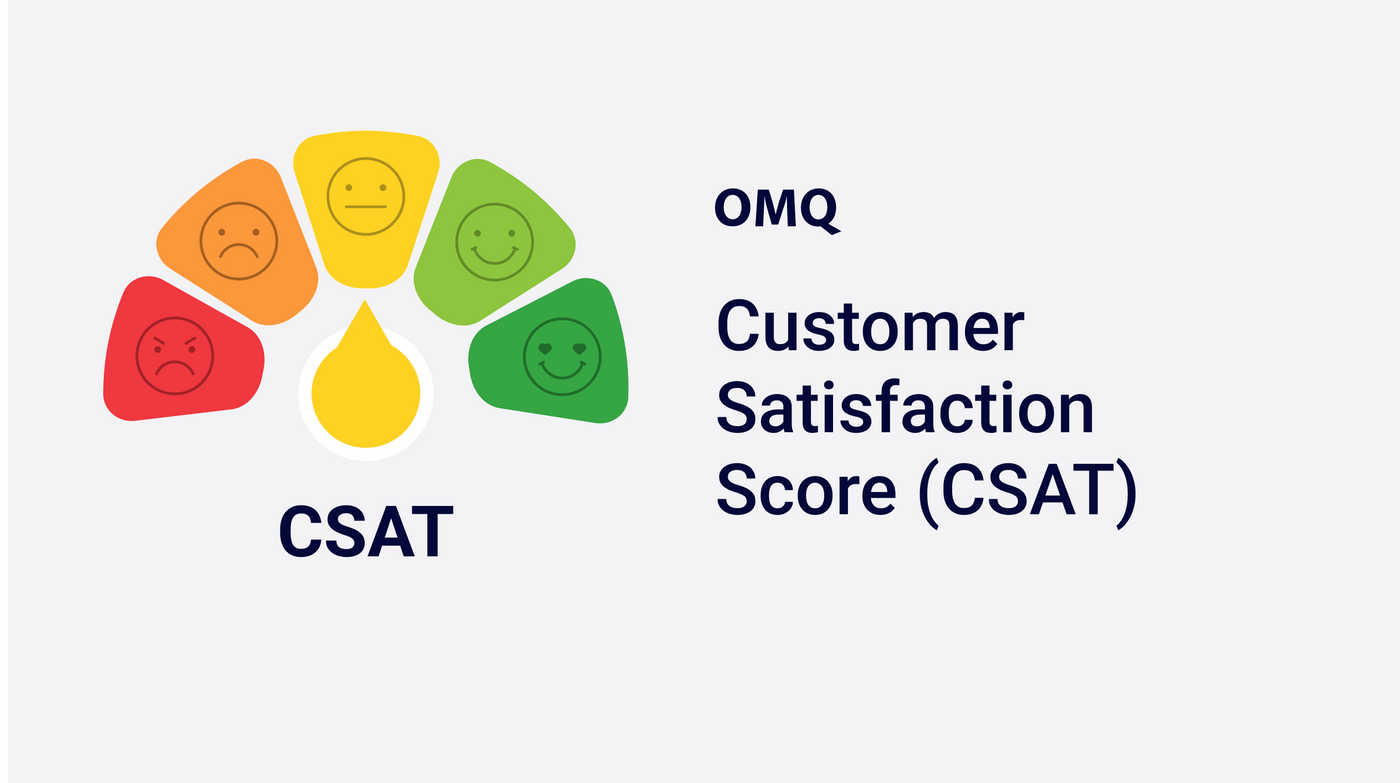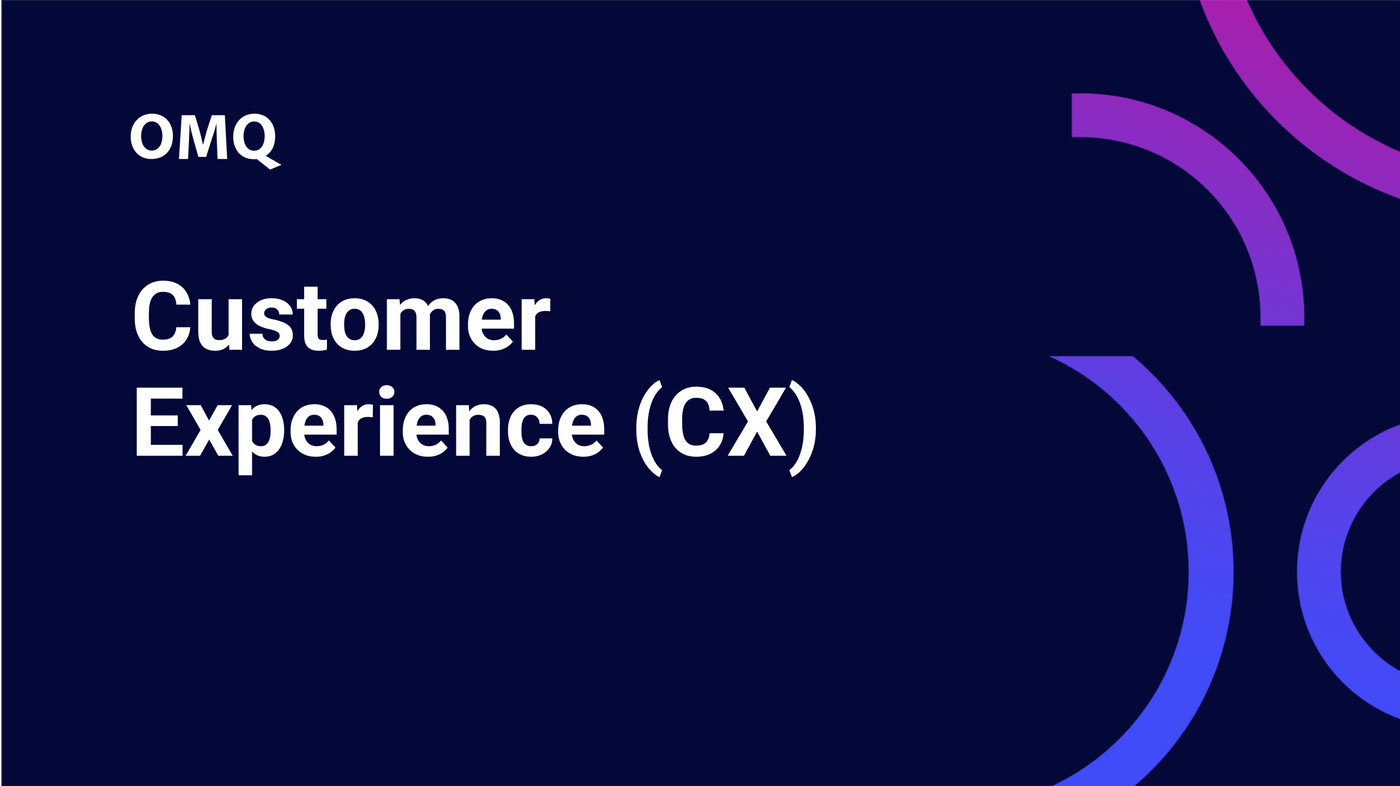Customer Service
Effective Customer Management: 10 Strategies for Successful CRM
Discover the importance and benefits of customer management (CRM) and learn how CRM software can optimize your customer relationships.
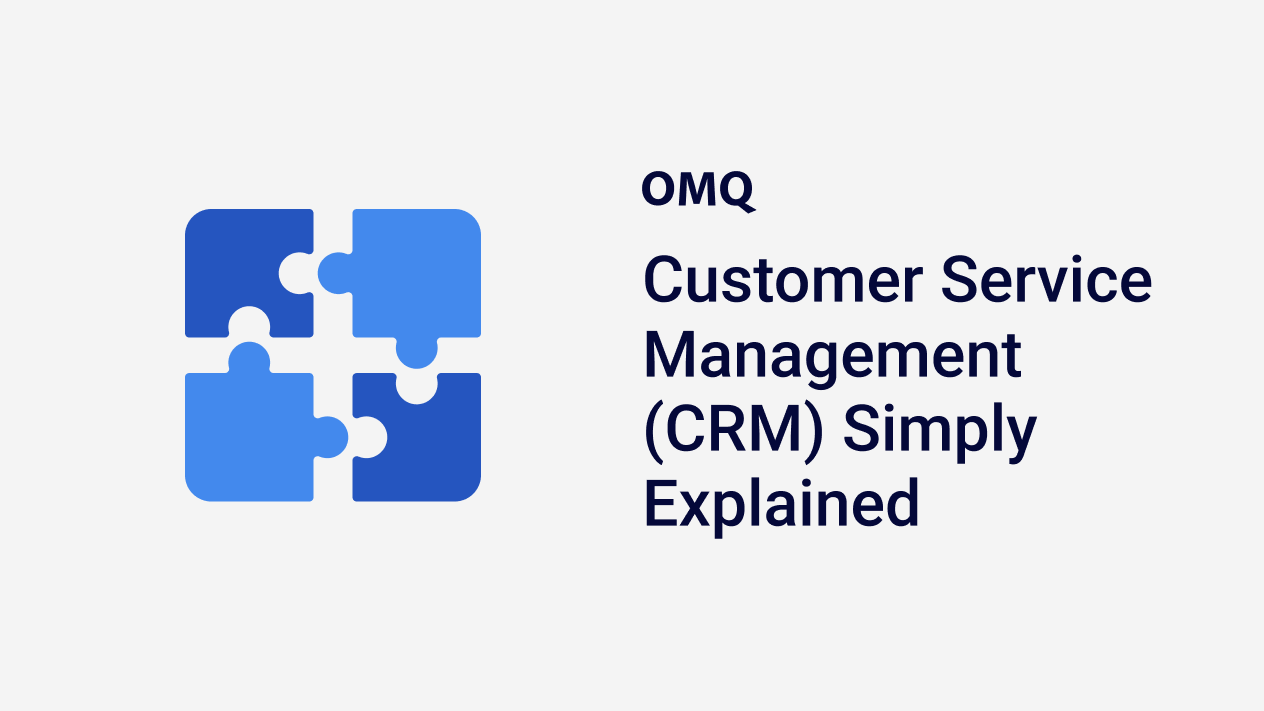
In today’s highly competitive business world, effective customer relationship management (CRM) is crucial to a company’s success. It is a strategic approach that aims to focus on the needs of customers and therefore increase customer satisfaction and loyalty. In this article, we take a detailed look at the elements of customer management, the benefits it offers, as well as the different types of CRM systems and their providers.
Customer Management Definition
Customer management is a comprehensive approach to managing and improving the relationships between a company and its customers. It encompasses all interactive processes with customers, from planning to execution. The goal is to maximize customer value and build long-term relationships.
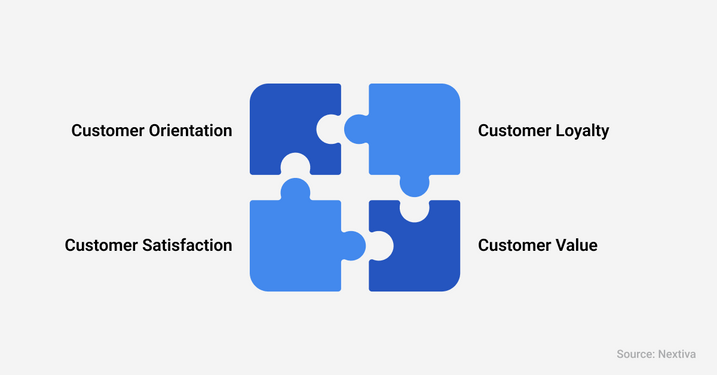
Components of CRM.
Elements of Customer Management
Customer management consists of several key elements:
-
Customer Relationship Management (CRM): This involves using CRM software to manage customer relationships in areas such as sales, marketing, and customer service.
-
Complaint Management: An effective system for handling complaints strengthens customer trust and improves retention.
-
Customer Contact Management: Managing all touchpoints between the customer and the company is crucial for a positive customer experience.
-
Key Account Management: Special attention to major clients requires differentiated approaches and customer-oriented attitudes.
Benefits of Customer Management
A well-thought-out customer management strategy offers numerous benefits:
-
Increased Customer Satisfaction: By better adapting to customer needs, companies can respond more quickly to trends.
-
Stable Revenues: Higher customer satisfaction leads to stronger retention, which in turn provides planning security.
-
Efficiency Gains: The use of CRM software enables centralized documentation and segmentation of customer data.
Technical Requirements for Effective CRM
Certain technical prerequisites are necessary for effective customer management:
-
CRM Software: This is indispensable for centralized documentation and analysis of customer data.
-
Professional Organization: Meaningful processes must be established to ensure thorough documentation in the CRM system.
-
Teamwork and Speed: Quick response to customer inquiries and collaborative work are essential.
The Theory of Customer Management: The 4Cs
The theory of customer management includes four fundamental aspects:
- Customer Orientation: Capturing and implementing customer wishes is paramount.
- Customer Satisfaction: The difference between customers’ expectations and their fulfillment is crucial.
- Customer Retention: Turning new customers into loyal ones.
- Customer Value: Considering the economic value a customer brings to the company.
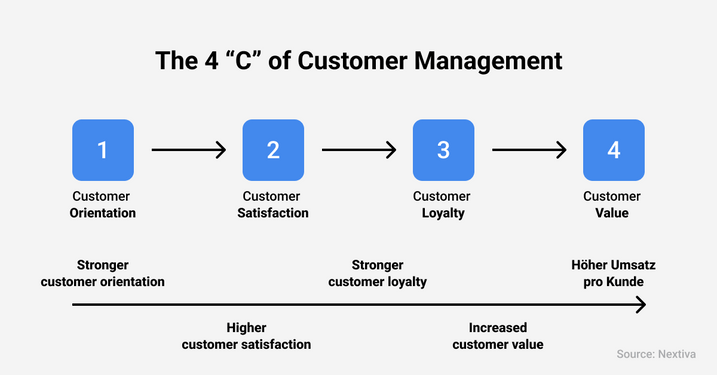
The 4Cs of CRM.
Types of CRM Systems
There are various types of CRM systems, each offering different functions:
-
Operational CRM: Supports direct contact with customers and optimizes business processes in marketing, sales, and service.
-
Collaborative CRM: Promotes interaction between different communication channels within a company.
-
Analytical CRM: Captures data for analysis with the aim of optimizing relationships.
10 Strategies for Good Customer Management
Foster a Customer-Oriented Corporate Culture
A customer-oriented culture is at the heart of successful customer management. Companies should ensure that all employees understand the value of customer satisfaction and act accordingly. This can be promoted through training, workshops, and regular communication.
Ensure Effective Communication
Communication is key to any successful relationship, including those with customers. Companies should create clear, consistent, and open communication channels to ensure that customer concerns are addressed quickly and efficiently.
Personalize Services
Customers appreciate personalized experiences. Companies can use CRM systems to collect data and offer personalized services based on individual needs and preferences.
Implement Proactive Complaint Management
A proactive approach to handling complaints can significantly increase customer satisfaction. Companies should view complaints as opportunities for improvement and provide quick solutions to strengthen trust.
Introduce Regular Feedback Loops
Feedback from customers is essential for continuous improvement. Regular surveys or feedback forms can provide valuable insights into the customer’s experience and help identify service weaknesses.
Utilize Modern CRM Technologies
The use of advanced CRM software can optimize the entire customer management process. These technologies help automate tasks, analyze data, and provide valuable insights for better decision-making.
Train Employees in Customer Service
Well-trained employees are crucial for effective customer management. Investing in training programs in the field of customer service can enhance employees’ skills in responding to inquiries effectively.
Build Long-Term Relationships
Instead of focusing solely on short-term sales, companies should aim to build long-term relationships with their customers. This can be achieved through loyalty programs or exclusive offers that highlight the value of a lasting partnership.
Enable Cross-Channel Customer Interactions
In an increasingly digital world, it’s important that companies are accessible across multiple channels. Whether by phone, email, or social media – seamless interaction across platforms significantly improves the customer experience.
Regularly Measure Success
To ensure strategies are effective, companies should regularly monitor KPIs (Key Performance Indicators). These metrics help determine whether goals are being met and where adjustments may be needed.
By implementing these strategies, companies can not only increase their level of satisfaction but also build stable business relationships over time.
Conclusion
Well-planned customer management (CRM) is critical for a company’s long-term success. By leveraging modern technologies like CRM systems, companies can optimize their processes, enhance satisfaction levels, and improve competitiveness. By focusing on their customers’ needs, they create valuable relationships that help them thrive in a dynamic market environment.

